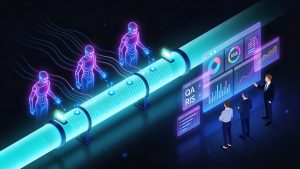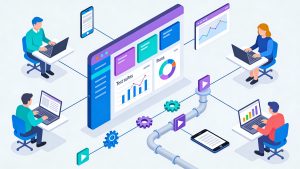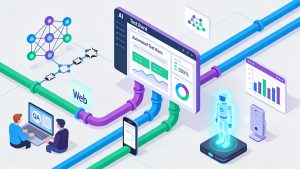OpenAI is set to transform its ChatGPT chatbot into a full-fledged ecosystem where developers can build apps, mirroring strategies previously adopted by giants such as Apple, Google, and Microsoft. The company recently revealed its second initiative allowing integration of external apps—starting with partners like Spotify, Zillow, Figma, Canva, and Booking.com—directly into the ChatGPT interface. OpenAI’s vision is to position ChatGPT as the primary gateway for interacting with diverse software, potentially evolving into an “operating system”-like hub for both users and developers.
Expanding Developer Opportunities
While developers will soon be able to monetize their ChatGPT-integrated apps, OpenAI continues to experiment with revenue models to meet market demands. Company leaders suggest the platform’s design will offer both accessibility and innovation, paving the way for new forms of engagement and utility. The goal is for ChatGPT to serve not only as a chatbot but as an entry point to a multitude of software experiences tailored by the developer community.
Tech Industry Acquisitions and Device Futures
Qualcomm’s recent acquisition of Arduino marks a strategic move into open-source hardware that strengthens ties with the global developer base. This development signals Qualcomm’s expansion into robotics and edge devices. Meanwhile, OpenAI made headlines earlier in 2025 by acquiring hardware startup io, which is led by Jony Ive, fueling speculation about a future “family of devices” built around AI-powered interactions. Although details remain under wraps, such partnerships indicate an accelerating convergence between software platforms and next-generation hardware.
Competition for Platform Leadership
Major players including Google, Microsoft, Apple, Meta, and Amazon are all positioning themselves to become central figures in the upcoming era of AI-centric platforms. Both established operating system leaders and ambitious newcomers are in pursuit of dominance as user habits evolve beyond smartphones and PCs to include smart glasses and other novel interfaces.
Nation-State Use of AI in Cyber Threats
OpenAI’s latest report underscores growing concern about adversarial use of AI tools by nation-state actors. Malicious groups have leveraged models like ChatGPT to plan hacking schemes, generate phishing materials, and automate covert influence campaigns. In response, OpenAI has banned several accounts linked to both Russian and Chinese entities found repeatedly utilizing multiple AI systems for complex attack planning. Although the reported campaigns have yet to achieve significant impact, their sophistication is expected to grow as experimentation with AI tools continues.
Evolving Threat Techniques
These threat actors employ AI not only to refine traditional cyberattack methods but also to disguise the telltale signs of automated activity. For example, scammers have used ChatGPT to modify text and avoid detection, while others exploit multi-model approaches for advanced research and phishing automation. The ongoing evolution in tactics emphasizes the vital need for robust digital defense strategies and continuous AI model monitoring.
AI-Generated Video Apps Fuel Fraud Risks
The release of new AI-powered video creation tools has emboldened scammers, making it easier to produce convincing content and perpetrate impersonation schemes. OpenAI’s latest video app, Sora, leverages second-generation AI models to enable rapid video development, a capability that further blurs the line between authentic and fake digital media. As AI-generated content becomes more sophisticated, technology professionals and users must remain vigilant against evolving fraud threats in the media landscape.
Market Moves and Tech Community News
Recent industry movements include AMD’s stock surge driven by a multi-billion dollar chip deal with OpenAI. Leading economists, meanwhile, characterize the current AI boom as healthy and largely not a risk to financial stability. In popular culture, concerns about unethical AI use were voiced by Robin Williams’ daughter amid an influx of AI-powered media recreations. OpenAI’s DevDay 2025 delivered moments of innovation and entertainment, with AI coding arcade games and interactive “living portrait” displays, reinforcing the widespread influence and playful spirit that now permeates tech events.
Read more such articles from our Newsletter here.



